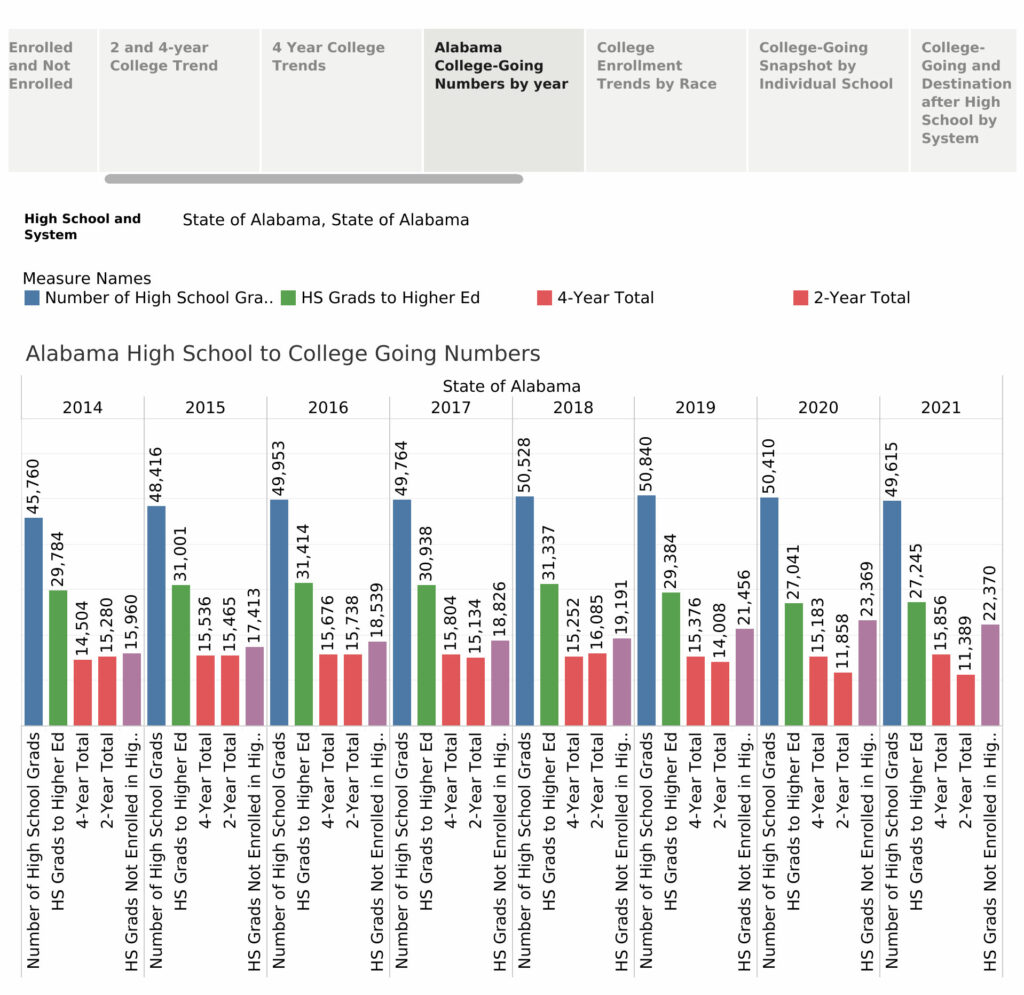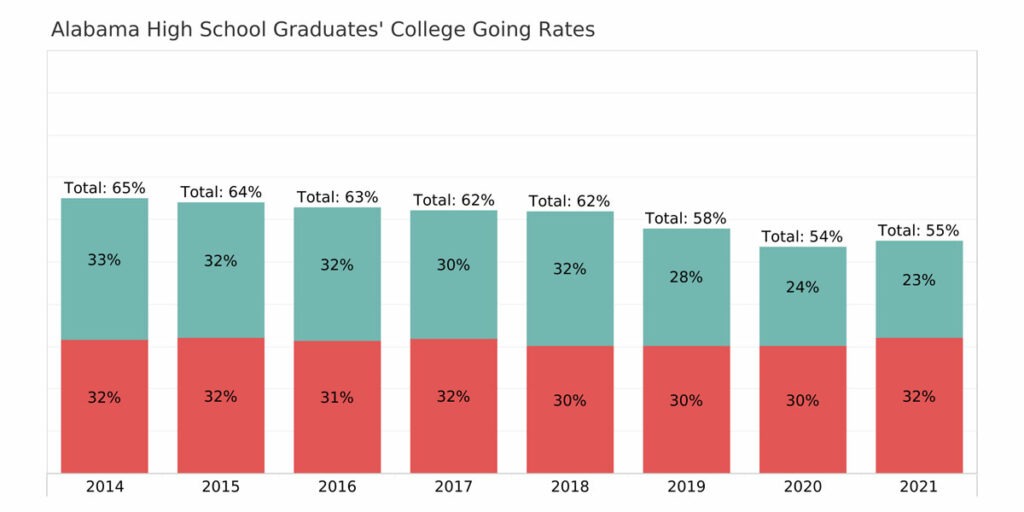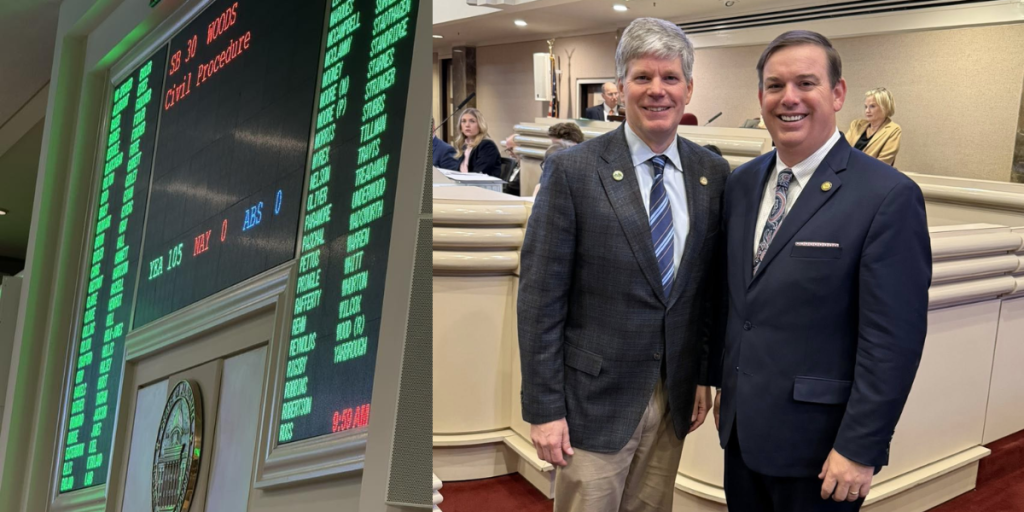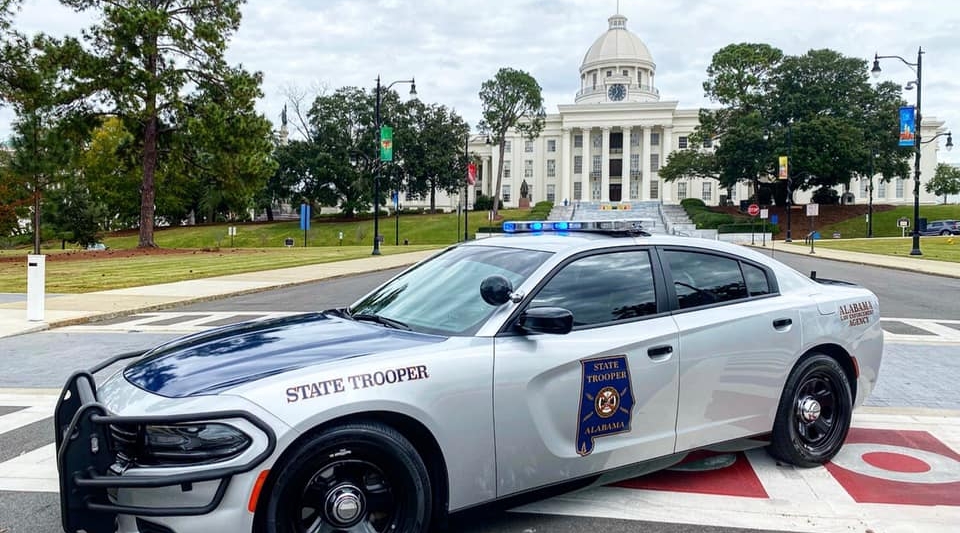Alabama’s 2021 public high school graduates entered higher education at a slightly higher rate than the Class of 2020, according to new data from the Alabama Commission on Higher Education.However, with only 55% of graduates entering higher education the year after graduation, the 2021 rate was still much lower than in the years before the pandemic.
Remarkably, though, the percentage of high school graduates enrolling at 4-year colleges is tied with its highest rate on record, with 32% of Alabama high school graduates enrolling at 4-year schools.
Even more notable is that the 4-year college-going rate for Black and White high school graduates was equal among the Class of 2021: 33% of Black high school graduates and 33% of White high school graduates in Alabama enrolled in a 4-year college the year after graduation. Historically, there has been a gap between the rate of enrollment of Black and White students in college.
ACHE annually queries the National Student Clearinghouse of Data to check which of Alabama’s high school graduates enrolled in college, either two-year or four-year, anywhere in the country in the year following their high school graduation.
The figures for the Class of 2021 show a continuing decline in the number of recent high school graduates enrolling in two-year colleges. Only 11,389, or 23% of graduates, enrolled at a community college compared to the more than 15,000 typically normally enrolled in community colleges in the years prior to 2018.
The number and percentage of students enrolling at 4-year colleges increased to 15,856, or 32% of recent high school graduates. Prior to 2019, the number and percentage of students who enrolled in four-year colleges and two-year schools were about equal.
College-going rates have been affected by multiple factors over the past decade. Between 2010 and 2020, as Alabama’s high school graduation rate climbed from 72% to over 90%, the percentage of those high school graduates going immediately into college declined. Some of those additional graduates likely lacked the academic preparation to go straight into college.
Two-year colleges
In the current economy, demand for workers is at historic highs. Low unemployment and a strong economy typically drive down two-year college enrollment. And statistics support the idea that more high school graduates are entering the workforce rather than pursuing education.
According to U.S. Census Bureau surveys, 32.6% of individuals between the age of 16-19 were in the labor force in Alabama in 2014. By 2021, 39% of 16 to 19-year-olds were in the labor force, according to Census.
The COVID-19 pandemic also disrupted college enrollment, particularly at two-year colleges. For graduates of the Class of 2020, two-year enrollment fell under 12,000, marking the lowest total since 2014, the earliest year in the dataset. And for the Class of 2021, the numbers were lower still, 11,389.
While those recent high graduates may be delaying entry to community college, other enrollees have begun to return to two-year colleges.
At the height of the pandemic, overall Alabama community college enrollment dropped by 10,000, from approximately 80,000 to 70,000. Recovery began in 2021, and preliminary overall fall enrollment was above 75,000.
Some students who didn’t immediately enter may now be returning to pursue a degree.
A final factor appears to have some bearing on the equation. An increasing number of high school students are also enrolled at community colleges, which is known as dual enrollment.
In 2018, only 15,372 students took dual enrollment courses. By the 2021-2022 school year, 23,483 students were dually enrolled. Students taking dual enrollment classes can graduate high school with college credit, with an industry-recognized credential, or even with an associate’s degree. That will increase the chances the student will enroll at a four-year college after graduation or flow into the workforce. Those dual enrollment students aren’t captured in the college-going rate data which tracks high school graduates in the year after their high school graduation.

Four-year colleges
Meanwhile, recovery was more rapid at four-year schools, with 15,856 graduates of the Alabama public high school Class of 2021 enrolling at 4-year colleges. That’s more 4-year enrollees than any year in the dataset, and it comes in a year when there were fewer high school graduates.
In terms of destination, the Class of 2021 sent more students to Alabama 4-year colleges but also increased the number of students going to out-of-state public and private schools. Enrollment at Alabama private colleges was slightly lower for the Class of 2021.













